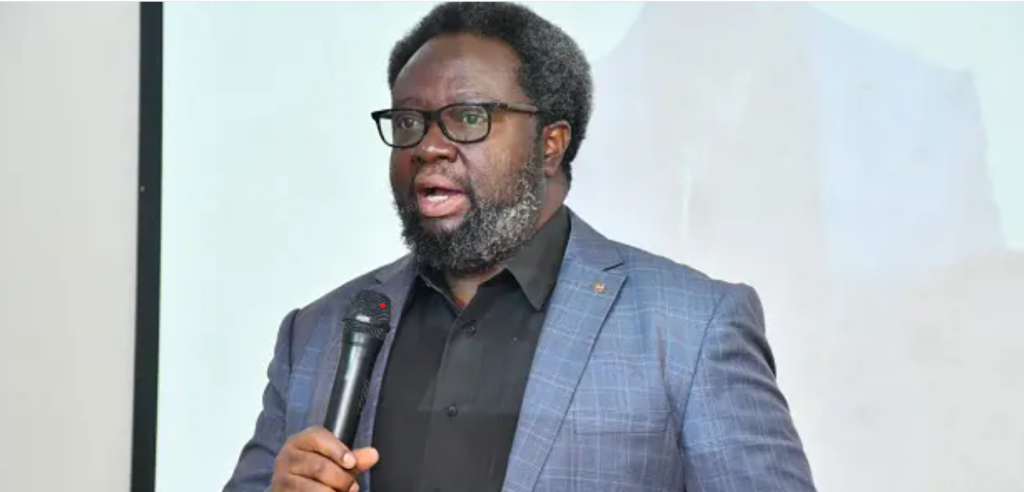The Director-General of Nigeria’s Raw Materials Research and Development Council (RMRDC), Professor Nnanyelugo Ike-Muonso, has championed the proposed 30% Value Addition Mandate Bill, asserting its potential to significantly boost the nation’s Gross Domestic Product (GDP) and address critical structural challenges. This bill, currently under consideration by the National Assembly, mandates a minimum of 30% local processing of all raw materials before export. Ike-Muonso contends that this measure would redirect financial flows away from illicit activities, particularly in the solid minerals and agricultural sectors, towards legitimate industrial investments, thereby stimulating economic growth and enhancing national security. He projects a potential 12% GDP increase within a year of the bill’s full implementation, highlighting the transformative impact of channeling capital into legal processing industries and reducing the financial clout of those engaged in illegal resource extraction, a key driver of insecurity.
The proposed legislation has sparked controversy, with critics like the Centre for the Promotion of Private Enterprise expressing concerns about potential adverse consequences for Nigerian exporters and manufacturers. However, Ike-Muonso argues that the benefits far outweigh any perceived drawbacks. He emphasizes the bill’s potential to strengthen institutions, improve border control against the smuggling of valuable minerals often disguised as commonplace materials like sand, and raise awareness among law enforcement and regulatory agencies regarding the true value of Nigeria’s resources. The ultimate goal, he asserts, is to shift Nigeria’s economic paradigm from a raw material exporter to a hub of industrial processing, generating positive ripple effects across job creation, revenue generation, and foreign exchange stability. This transformation, according to Ike-Muonso, is crucial for sustainable economic development and national security.
The upcoming Africa Raw Materials Summit 2025, themed “Shaping the Future of Africa’s Resource Landscape,” is positioned as a crucial platform for advancing the value addition agenda across the continent. Ike-Muonso underscores the urgency of this initiative, noting that despite holding over 30% of the world’s strategic raw materials, Africa remains at the lower rungs of global value chains due to its continued reliance on exporting unprocessed resources. The summit aims to galvanize continental consensus on the imperative of value addition, fostering intra-African trade through industrial linkages and forging robust public-private partnerships to drive long-term economic transformation. The event is envisioned as a call to action for Africa to industrialize and secure a more prominent role in the global economy, rather than remaining a mere supplier of raw materials.
Ike-Muonso highlighted the RMRDC’s proactive approach, transitioning from policy advocacy to legislative action to ensure the sustainability and impact of the value addition initiative. He emphasized that while policies can be disregarded, laws compel action, demonstrating the council’s commitment to driving tangible change. The summit, expected to attract over 1,000 high-level delegates, including ministers from various African countries, representatives from development banks, and regional agencies, underscores the growing continental recognition of the need for value addition. This gathering provides a strategic opportunity to share best practices, coordinate efforts, and mobilize resources to unlock the full potential of Africa’s vast resource wealth.
The 30% Value Addition Mandate Bill represents a significant step towards achieving sustainable economic growth and development in Nigeria. By promoting local processing of raw materials, the bill aims to create a more diversified and resilient economy, reduce dependence on raw material exports, and generate high-value jobs. The anticipated improvements in institutional capacity, border control, and resource valuation further strengthen the bill’s potential to transform Nigeria’s economic landscape. The accompanying Africa Raw Materials Summit 2025 provides a crucial platform for extending this transformative vision across the continent, fostering collaboration and driving collective action towards a more prosperous future for Africa.
The summit’s focus on shaping the future of Africa’s resource landscape underscores the continent’s determination to move beyond its historical role as a raw material supplier and become a key player in the global value chain. By prioritizing value addition, Africa aims to unlock the full economic potential of its resources, create new industries, generate high-quality jobs, and improve its terms of trade. The collaboration and partnerships forged at the summit are expected to pave the way for concrete actions and investments that will drive sustainable and inclusive economic growth across the continent, ultimately improving the livelihoods of millions of Africans. The 30% Value Addition Mandate Bill and the Africa Raw Materials Summit 2025 represent a pivotal moment in Africa’s journey towards economic transformation.


